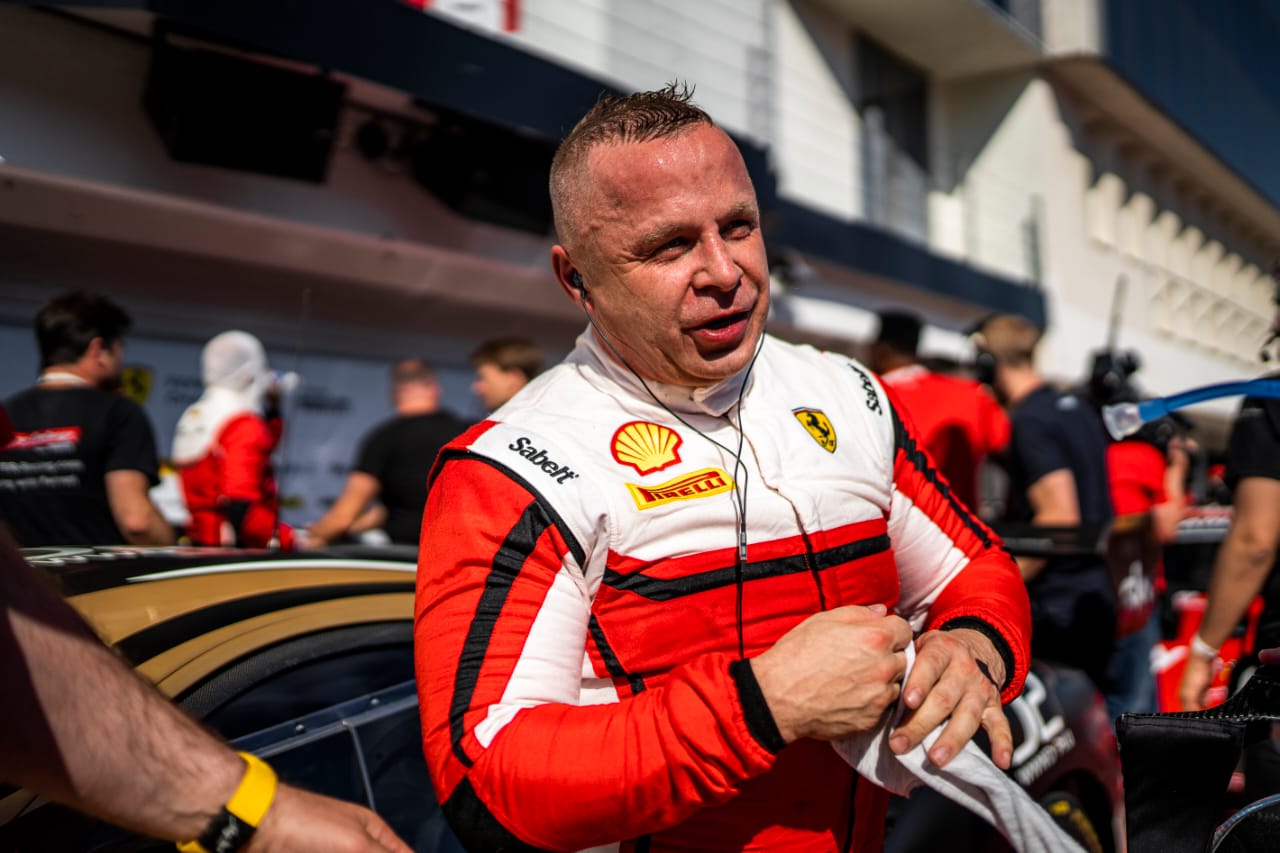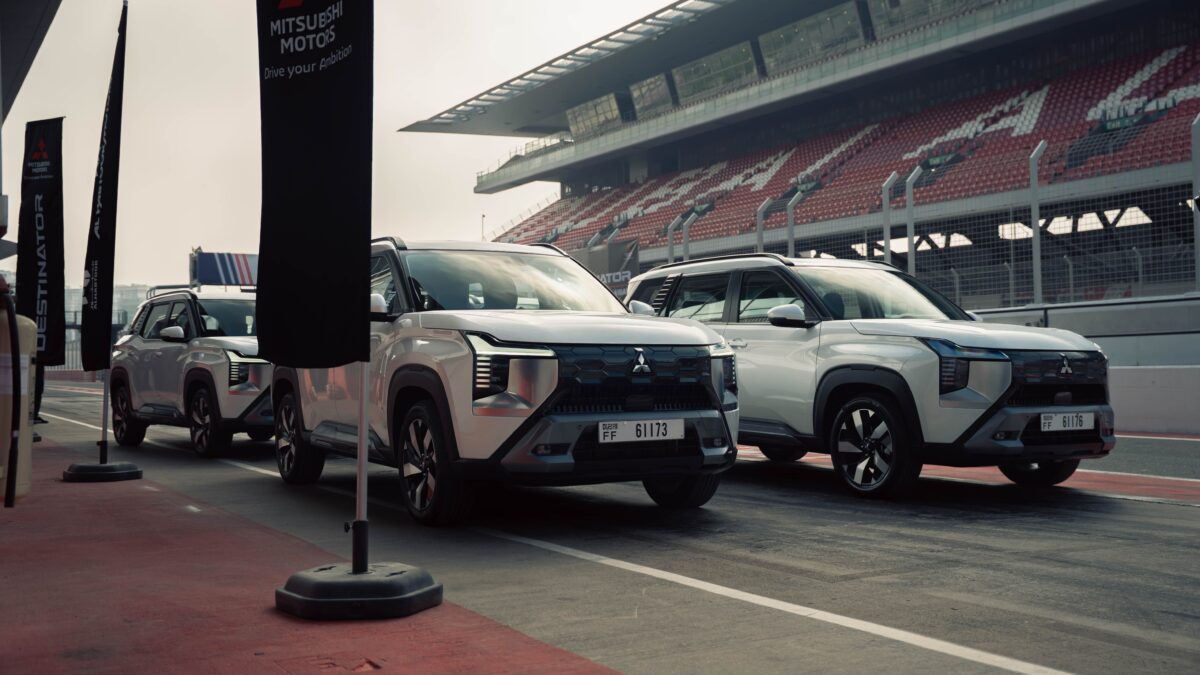
Racing into the future: how the GCC is shaping the next era of motorsport
Roman Ziemian, a global entrepreneur and racing enthusiast, reflects on the GCC’s pivotal role in the evolution of motorsport.
As someone deeply invested in both business and motorsport, I’ve seen firsthand how innovation can transform industries and I really believe the GCC is leading this transformation in racing. From the adrenaline of Formula 1 in Abu Dhabi to the rise of autonomous and electric competitions, the region is pushing boundaries and setting new standards.
The inaugural ASPIRE Autonomous Racing League (A2RL)
One of the most significant recent developments in this space is the emergence of autonomous racing in the UAE. In April this year, Abu Dhabi’s Yas Marina Circuit—world-famous for hosting the annual Abu Dhabi Grand Prix—held the inaugural ASPIRE Autonomous Racing League (A2RL). This event marked a key moment in the region’s racing history.
A competition featuring four self-driving cars, developed by teams worldwide, this race wasn’t just about speed, but also a showcase of artificial intelligence (AI) and machine learning in action. The winning team from the Technical University of Munich walked away with a $2.25 million prize, underscoring the high stakes and growing importance of autonomous racing.
The rise of self-driving cars
This autonomous race is just one of several steps the UAE is taking to assert its presence as a leader in autonomous transportation. Last year, the UAE Cabinet approved a preliminary national license for self-driving cars, signalling the country’s intent to integrate autonomous vehicles into public life.
Additionally, electric cars have been mapping the streets of Dubai as part of a larger plan to roll out autonomous public transportation. These initiatives align with global trends forecasting the value of the autonomous vehicle market to reach $1.8 trillion by 2030, up from $94.4 billion in 2021. The GCC, led by the UAE and Saudi Arabia, is positioning itself to capitalize on this explosive growth.
However, while the prospects for autonomous racing and transportation are exciting, the road ahead is not without challenges. The technology is still evolving, and as AI continues to develop, questions about safety, regulation, and ethics arise. These concerns will require careful consideration, particularly in the high-speed, high-stakes world of racing. It’s crucial that policymakers in the region adopt a balanced approach, ensuring that the technology is implemented safely and equitably.
Blending tradition and innovation
Amid the rise of autonomous technology, the tradition of motorsport remains deeply ingrained in the region’s identity. The Abu Dhabi Grand Prix, held annually at Yas Marina Circuit, has become one of the crown jewels of the Formula 1 calendar. It not only draws millions of viewers worldwide, but also attracts thousands of fans to the UAE each year, solidifying the country’s reputation as a premier destination for motorsport enthusiasts. The event has also evolved into more than just a race—it’s a cultural phenomenon that encapsulates the region’s passion for speed, luxury, and spectacle.
Formula 1’s presence in the UAE is symbolic of the broader motorsport culture that exists in the Gulf. Saudi Arabia has also been making waves in this arena, hosting the Formula E races in Diriyah. Formula E, the all-electric racing series, has gained momentum globally, and its continued presence in the GCC highlights the region’s commitment to sustainable innovation. In fact, Saudi Arabia hosted its seventh Formula E event this year and this move is part of a broader strategy to integrate sustainability with sport.
The introduction of all-electric racing complements the region’s broader goals of reducing carbon emissions and promoting sustainability. In a world increasingly conscious of environmental impact, the GCC’s investment in Formula E and other electric vehicle initiatives positions it as a leader in the global shift toward greener technologies.
Yet, even as autonomous and electric racing capture global attention, there remains a significant role for traditional motorsport. Formula 1, with its combustion engines, adrenaline-pumping speed, and the human element of competition, continues to captivate audiences in a way that autonomous racing has yet to match.
The future of racing in the GCC
The future of racing in the GCC will likely see a convergence of these different modes of racing—autonomous, electric, and traditional—each offering a distinct flavour of excitement. Formula 1 will remain a staple, especially as it continues to push the boundaries of technology and performance, while autonomous and electric racing will carve out their own niches, appealing to tech enthusiasts and sustainability advocates alike.
As the world continues to evolve toward a future defined by AI, automation, and sustainability, the GCC will undoubtedly play a pivotal role in shaping the next generation of motorsport. The combination of autonomous racing leagues like A2RL and the continued dominance of events like the Abu Dhabi Grand Prix provides a glimpse into a future where technology and tradition are not in opposition, but rather, work together to define the next era of racing.
https://romanziemianmobility.com/







